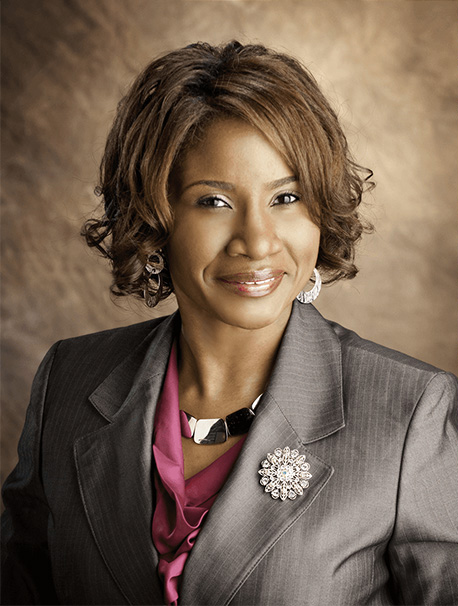In business, the role of a Chief Financial Officer (CFO) is one of the most sought-after positions available. The title of CFO comes with prestige and respect. Like all roles in an organizational chart, though, a CFO is a meaningful working piece in the big picture that makes up your organization. The title of CFO is one that comes with unique responsibilities and requires a qualified individual. But, how do you know what to look for in a good CFO? Let’s take a look at what a CFO is, what they actually do, and how to find a great one for your organization.
What is a CFO?
A Chief Financial Officer is the highest-ranking position at most organizations and is responsible for the financial health of an organization. Their responsibilities include building, managing, and leading the accounting and finance departments within the company.
A CFO monitors revenues and expenses to ensure that they stay in balance and react when they veer from the budget. They constantly supervise cash flow and future cash projections and ensure that financial reports accurately describe the financial position of the organization. They are also responsible to manage the financial planning for the organization, making recommendations about mergers and acquisitions, or securing the necessary funding for growth, operations, or special projects.
To function well, a CFO must work with all other department heads.
5 Qualities of a Good Financial Officer
A CFO has robust financial knowledge and experience.
The CFO is the top decision-maker of the financial department of an organization as well as a member of the leadership team. CFOs have usually qualified themselves for the position with education and experience in accounting and finance. Holding previous positions like Financial Controller shows that a candidate can analyze financial data, understand budgets and forecasts, and be able to lead a team towards optimal financial results.
The right individual to sit as CFO will be a good communicator and empower the rest of the company.
A CFO’s responsibilities have evolved from simply managing the financial department of the organization to contributing the leadership team that carries a company to success. A big part of the CFO’s role is to analyze data and communicate it to the rest of the company, most of whom do not have finance experience.
Financial departments indicate the health of an organization through reports, but the CFO must put the data to good use by communicating the current position and future movement to the rest of their team so it can be put into motion.
A successful CFO considers the CEO as a partner.
The two positions must help and support each other to create strong leadership that can move the organization forward. It is important that all members of the working organization feel motivation from a unified vision, which much is shared by the Chief Executive Officer (CEO) and the CFO to be successfully communicated.
When searching for the right CFO at any organization, incorporate the feedback and values of the CEO.
An organization’s CFO knows how to manage risk and adapt.
The CFO must manage risk as operations are ongoing. Some risk is required to move the organization forward, but too much risk can be detrimental to profit or growth. It takes a trained professional to be able to recognize the fine line between the two. Monitoring risk comes with the ability to adapt quickly.
A strong CFO is able to recognize when it’s time to stop a project or change the course of operations and implement adaption without allowing fear or pride to derail them.
A great CFO has vision and foresight, so when looking for the right fit in the position it is important to find someone that is a forward thinker.
The right candidate for CFO will understand that with every decision, there is a future consequence. A good CFO will consider the future success and growth of the organization in every decision and policy change.
The role of the CFO allows an individual a unique view of the entire company, seeing the entirety of all production and financial functions and how they can benefit or compromise the future of the organization.
Conclusion
An organization can not run smoothly without a great CFO that can listen, communicate, and lead. The responsibilities of a CFO have evolved over time to require more than just a manager of the accounting and finance teams. Good CFOs have diverse financial experience, communicate well, work with other leadership roles in the company, manage risk, and have a vision for the future.
If you’re looking for a financial leader to take your organization to the next level, speak with an expert today at JFW Accounting Services to get started.

Jo-Anne Williams Barnes, is a Certified Public Accountant (CPA) and Chartered Global Management Accountant (CGMA) holding a Master’s of Science in Accounting (MSA) and a Master’s in Business Administration (MBA). Additionally, she holds a Bachelor of Science (BS) in Accounting from the University of Baltimore and is a seasoned accounting professional with several years of experience in the field of managing financial records for non-profits, small, medium, and large businesses. Jo-Anne is a certified Sage Intacct Accounting and Implementation Specialist, a certified QuickBooks ProAdvisor, an AICPA Not-for-Profit Certificate II holder, and Standard for Excellence Licensed Consultant. Additionally, Jo-Anne is a member of American Institute of Certified Public Accountant (AICPA), Maryland Association of Certified Public Accountants (MACPA), and Greater Washington Society of Certified Public Accountants (GWSCPA) where she continues to keep abreast on the latest industry trends and changes.

